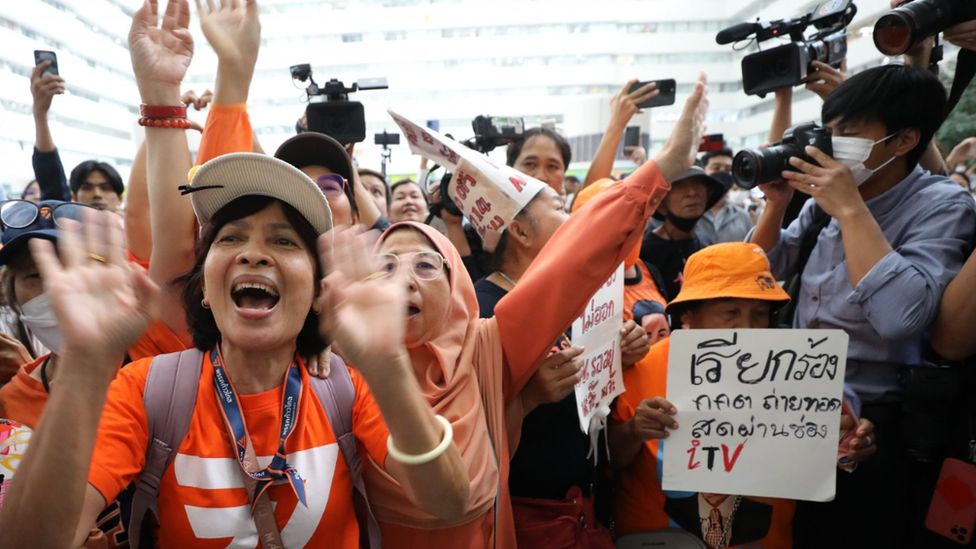Share

By Frances Mao & Jonathan Head
BBC News
Thailand’s reformist political champion will be re-instated as an MP after winning a trial his supporters say was aimed at ending his political career.
The Harvard-educated Pita Limjaroenrat and his Move Forward party won the most votes in a huge election win last year.
But he failed to take charge after being blocked by the unelected Senate.
The charismatic young leader was seen as a threat to the establishment for promising to reform harsh royal insult laws and to tackle military influence.
While negotiating to form a coalition government after his election victory, two court cases were lodged against him. His supporters saw this as part of a wider campaign by conservative political forces to oust him from politics and discredit his party’s ideas.
On Wednesday he was acquitted in the first case against him, but he faces a potentially more serious legal challenge next week.
The Constitutional Court will rule again, this time on whether his plan to reform Thailand’s harsh lese majeste law amounted to an attempt to “overthrow the democratic regime of government with the king as the head of state”.
A verdict finding that Move Forward acted unconstitutionally in this way could lead to it being dissolved, and its leadership being banned from politics.
In 2019 the court dissolved Move Forward’s previous incarnation Future Forward, after it too had done better than expected in an election. That verdict sparked off months of street protests and unprecedented public criticism of the monarchy.

On Wednesday Pita’s supporters cheered outside the Constitutional Court when they heard he had won his case, chanting “PM Pita”.
“It was Pita himself who told us that we have to live with hope,” Luksikarn Tangchotithanavid, 40, told the BBC.
“Our generation can read and understand the law. We know what is written and how it should be executed. According to the law, he should not be disqualified in this case.”
Mr Pita was acquitted of violating election law by owning shares in a media company while contesting last year’s election.
He had been suspended as an MP last July over the allegations and banned from sitting in parliament, forcing him to give up leadership of his party.
His defence has been that he inherited the shares from his father, but that the company had not been operating for many years, long before he ran for office. A majority of judges agreed with him in their ruling on Wednesday.
“Holding the shares did not violate the law. The court has ruled his MP status has not ended,” Judge Punya Udchachon said.
Before the verdict, Mr Pita also told reporters he would keep fighting for the reforms his party had promised.
As well as amending the lese majeste law these include breaking up business monopolies and limiting the military’s influence in politics and business. This platform proved very popular in the 2023 election, giving Move Forward 151 of the 500 seats in parliament, more than any other party.
“No matter the result I will still be working for the people,” he said on Wednesday before the verdict. “[This court case] is only a detour. Regardless of the verdict we will continue fighting.”
Thailand under King Maha Vajiralongkorn has seen a significant increase in the use of lese majeste laws to silence political critics. More than 260 people have been charged under the law since November 2020.
Last week, a 30-year-old man was sentenced to 50 years in jail for comments that were ruled to have defamed the Thai monarchy. This was the most severe sentence ever handed down under the country’s notorious lese https://milodingines.com/ majeste laws.